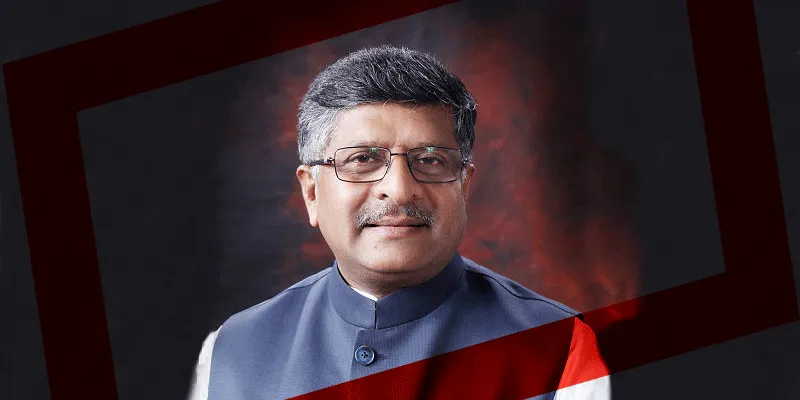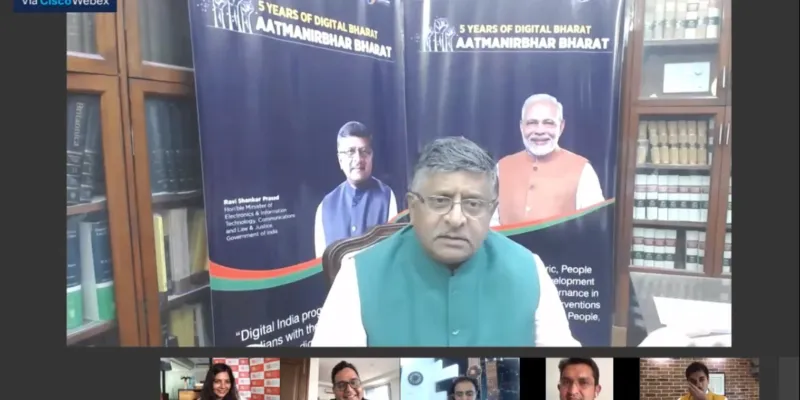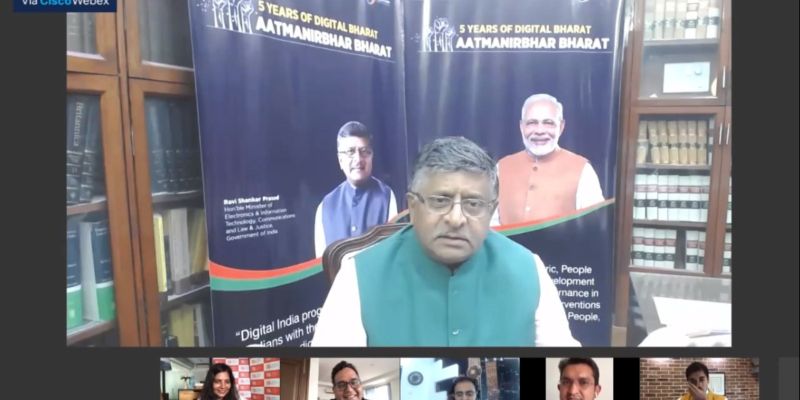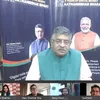Common Service Centres (CSC) instrumental in making digital inclusion of rural India a reality, says IT Minister
Speaking at the virtual Digital India Town Hall organised by YourStory, Union IT Minister Ravi Shankar Prasad said that Digital India campaign is for digital inclusion and emphasised that the common man has a stake in the campaign.

Union Minister for Electronics and IT, Law and Justice and Communications Ravi Shankar Prasad
The Indian government’s special purpose vehicle, Common Service Centres (CSC) or Digital Seva Kendras, are instrumental in making the digital inclusion of rural India a reality, said Ravi Shankar Prasad, Union Minister for Communications, Electronics and Information Technology, and Law and Justice.
Speaking at YourStory's Digital India Townhall on Wednesday, Ravi Shankar Prasad said, “Digital India was designed to 1) empower Indians with the power of technology, 2) bridge the digital divide, and 3) ensure digital inclusion.”
The minister said that inclusion is central to the government's approach with its Digital India programme, and he believes that the rural market will drive India digitally in the future.
Already, the CSCs -- which have been established as a part of the Digital India initiative to deliver the government's e-Services to rural and remote locations -- have helped create digital entrepreneurs in small towns and villages, he noted, adding that 12 lakh direct and indirect jobs have been created via CSCs.

Union Minister for Electronics, Communication, and Information Technology Ravi Shankar Prasad at YourStory's Digital India Townhall
On this day, five years ago, Prime Minister Narendra Modi-led central government had launched the Digital India campaign to digitally empower India and make government services available across the country via digital means. The campaign is also aimed at connecting the rural areas of the country and empowering them by integrating them with technology.
Role of CSCs in ensuring digital inclusion
CSCs, which are are “multiple-services-single-point” physical entities, operate on a three-tier structure which includes, Village Level Entrepreneur or VLE, who is the CSC operator; the Service Centre Agency (SCA), who is responsible for covering a group of districts in a state; and finally, a State Designated Agency (SDA) which will be responsible for ensuring the implementation of the CSCs scheme throughout the state.
As the country completes the fifth year of the Digital India initiative, Economic Times reported that the government is aiming to deploy around five lakh fibre-to-the-home internet connections across rural villages by September this year.
According to the report, the implementing agency has already deployed 42,360 connections across the remote areas and villages and the implementation is going to be more aggressive in the coming days as the country opens up after observing more than two months of nationwide lockdown due to COVID-19.
Platform for the common man
Speaking at YourStory's Digital India Townhall, the union minister said that entrepreneurs need to focus on creating platforms which will “resonate with the common people” and they will also have a say in it.
“Digital India is for digital inclusion. Unless the common man has a stake in Digital India, it would not succeed,” says Union Minister Ravi Shankar Prasad.
While addressing entrepreneurs during the online event, the minister also requested Indian innovators to come up with a “platform for farmers where they can have access to all the information they need for better results in the rural parts of India.”
Edited by Kanishk Singh











![[Funding alert] Locus raises $50M Series C funding led by GIC](https://images.yourstory.com/cs/2/b094ec506da611eab285b7ee8106293d/nishith-1614753097789.jpg)
![[Funding alert] IvyCap Ventures invests Rs 15 Cr in Bidgely](https://images.yourstory.com/cs/2/b87effd06a6611e9ad333f8a4777438f/Eajz3g3UMAAI0aX-1608619243276.jpg)